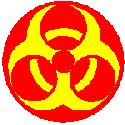 EU Committee: "Bt Maize Safe For Market"
EU Committee: "Bt Maize Safe For Market"
News: May, 2002
The European Union's Scientific Committee on Food says that Novartis's Bt11 sweet maize "is as safe for human food use as its conventional
counterparts." It says there is no evidence to indicate that placing it on the market for cultivation purposes (and varieties bred from it) is likely
to cause adverse effects on human health and the environment. The opinion is based on an application to market Bt11 sweet maize, as fresh
vegetables or after processing. The sweet maize line is derived from Bt11 field maize, food products from which already have market consent
in the European Union, following notification (30 January 1998) according to article 5 of Regulation 258/97/EC. Field maize of line Bt11 was
transformed to produce a truncated form of the d -endotoxin Cry1A(b) of Bacillus thuringiensis var. kurstaki. The maize also contains the
selective marker for transformation phosphinothricin acetyltransferase. The transgene cassette was transferred from field maize to sweet
maize by traditional breeding methods. Since both lines are derived from one transformation event, the applicant has supplied data derived
from experiments on both field- and sweet maize.
In February 1998, the Committee published its opinion on hybrids derived from Bt11 field maize 1. This opinion looked at the molecular
genetics of the construct, and safety aspects such as the potential for gene flow and the safety of gene products and metabolites and the
question of substantial equivalence. In addition, the environmental impact of growing hybrids from Bt11 field maize was considered. The
opinion concludes that the use of imported genetically modified seed carrying the Bt11 event can be considered as safe as utilising seed from
non-genetically modified plants. The European Commission subsequently published its decision to grant consent to the placing on the market
of genetically modified maize of line Bt11 pursuant to Council Directive 90/220/EEC 2 to be used as any other maize grain but not for
cultivation. A request for the cultivation of Bt11 maize including sweet maize under Directive 90/220/EEC was filed.
In February 1999, Novartis requested authorisation to place on the market food products (fresh and processed) derived from a genetically
modified, insect protected sweet maize referred to as "Bt11 sweet maize", under Regulation 258/97/EC 4 of the European Parliament and
of the Council. Subsequently, Member States have commented on this application, raising a number of issues, to which the applicant has
responded in a second dossier, dated January 2001.
 EU Committee: "Bt Maize Safe For Market"
EU Committee: "Bt Maize Safe For Market"